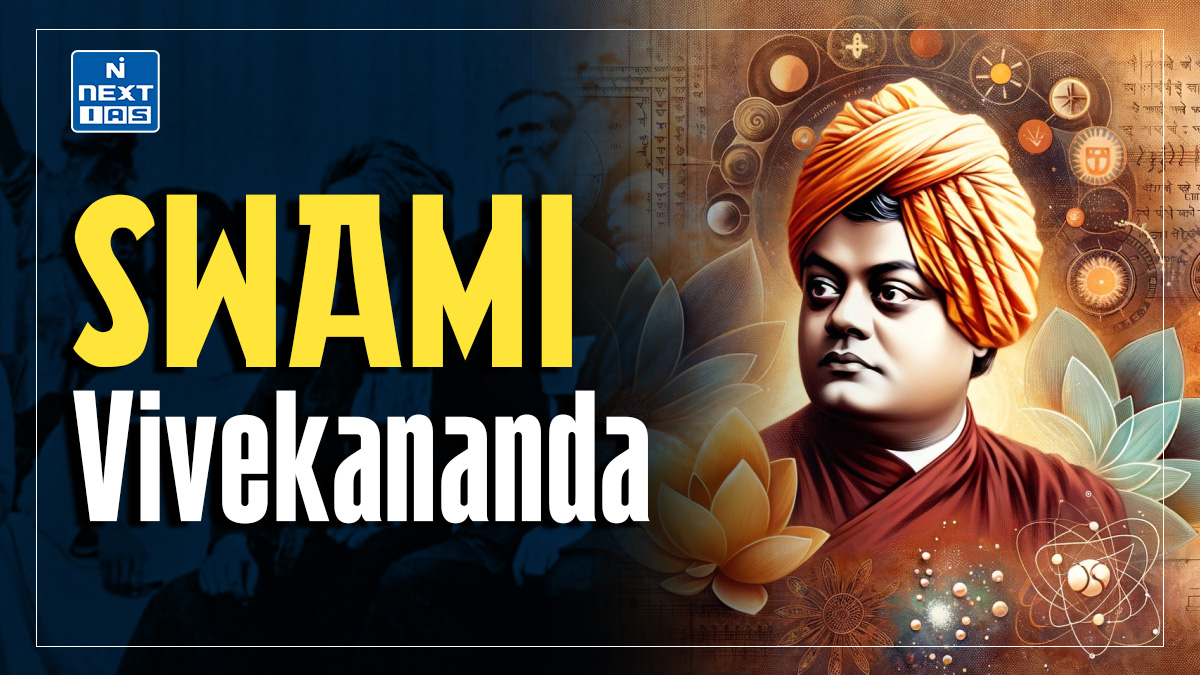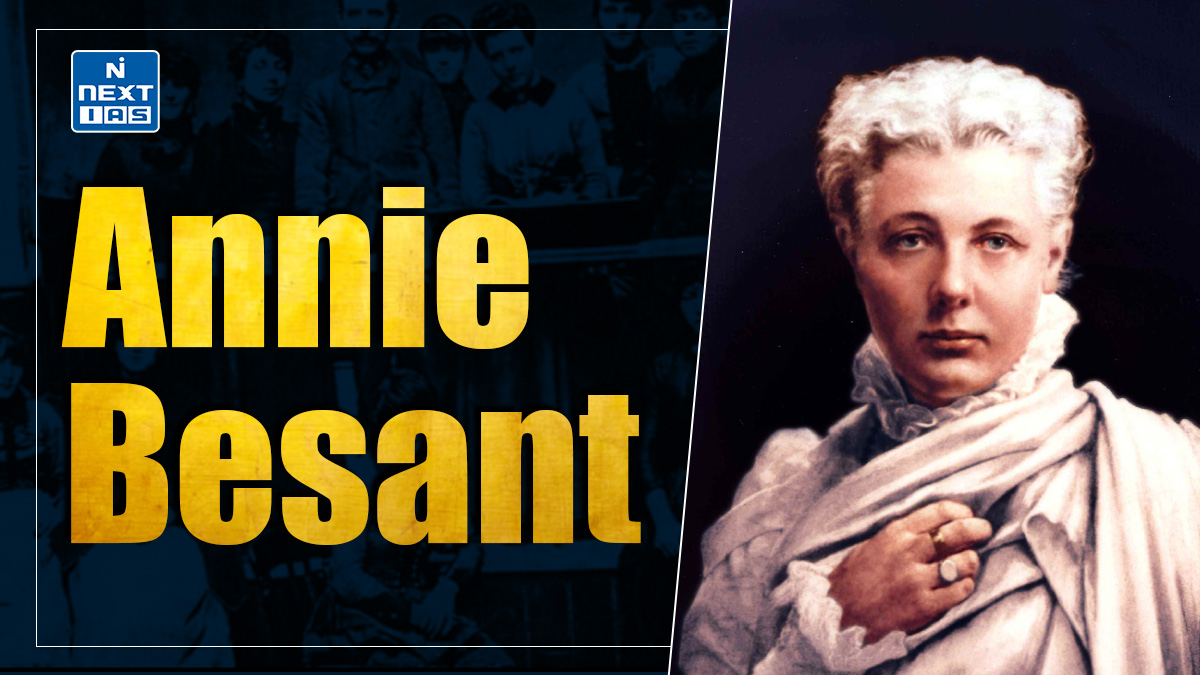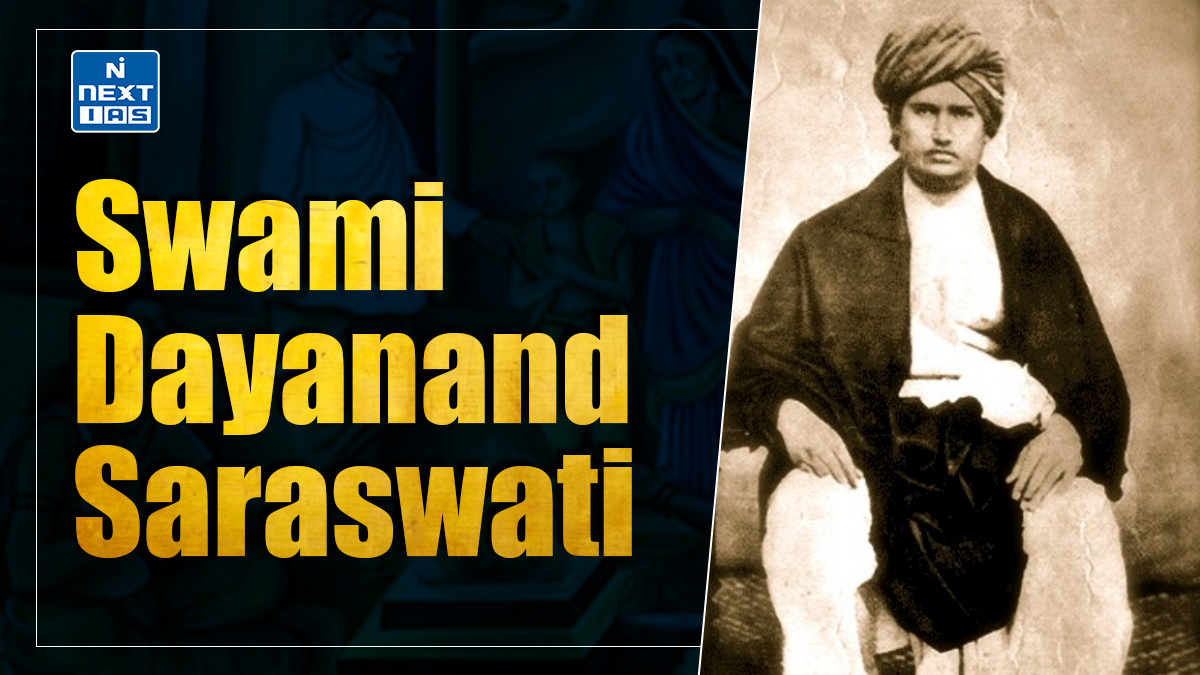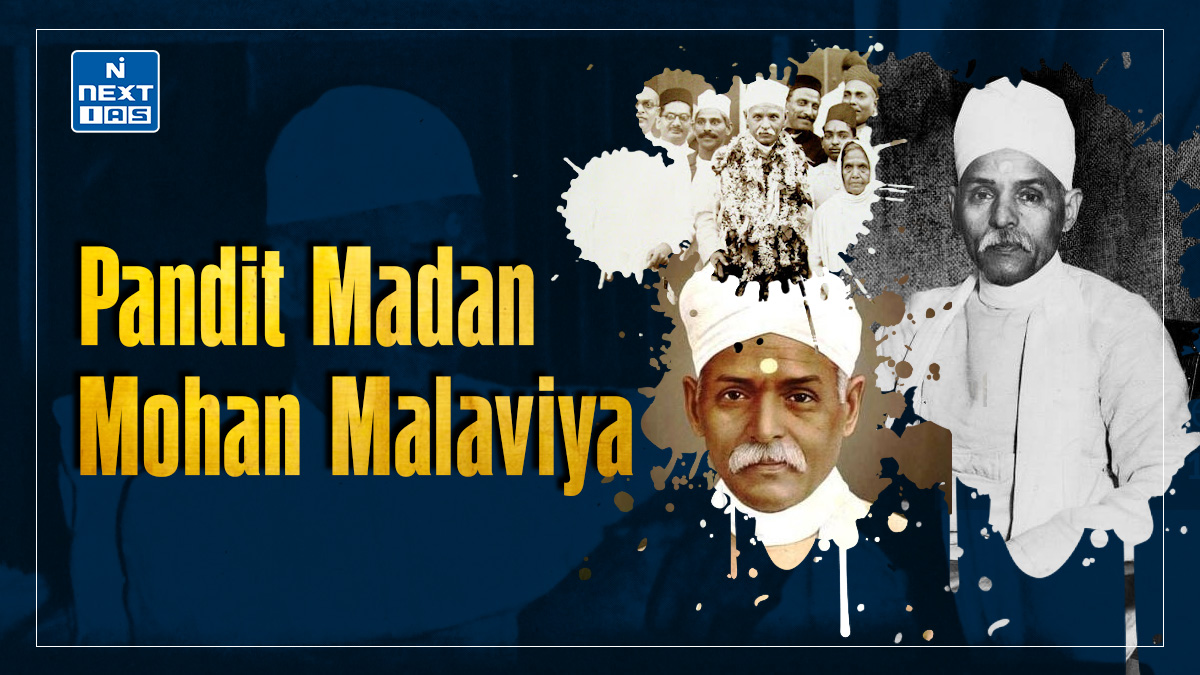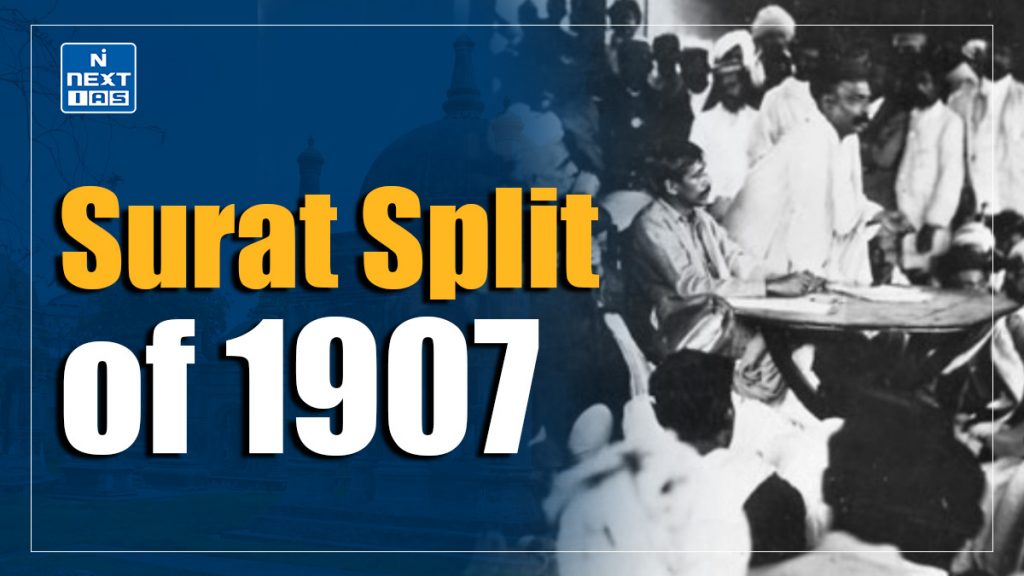
The Surat Split of 1907 was a pivotal division within the Indian National Congress between the Moderates, who advocated for gradual reforms, and the Extremists, who demanded immediate and direct action against British rule. This split significantly weakened the nationalist movement, allowing the British to suppress the Extremist faction and temporarily stall the momentum for independence. This article aims to study in detail the causes, key events, and consequences of the Surat Split, exploring its lasting impact on the freedom struggle.
About Surat Split of 1907
- The ideological rift between the Moderates and Extremists in the Indian National Congress had been developing for years.
- Moderates, including leaders like Gopal Krishna Gokhale, believed in settling issues through negotiations and constitutional methods, focusing on achieving incremental reforms.
- They sought to limit the Swadeshi and boycott movements to Bengal, avoiding a nationwide call.
- On the other hand, the Extremists, led by Bal Gangadhar Tilak, advocated a more direct and militant approach, using boycotts and strikes to push for widespread swadeshi, boycotts, and national education across the country.
- This faction aimed for a nationwide movement to challenge British authority directly.
Calcutta Session of 1906
- At the 1906 Calcutta Congress session, tensions grew as Dadabhai Naoroji, a respected Moderate leader, was elected as a compromise presidential candidate.
- Naoroji’s address was historic, declaring that the Congress’s goal was Swaraj (self-government) like that enjoyed in the United Kingdom.
- Although both factions agreed on Swaraj as an aim, their interpretations diverged, with Extremists envisioning a more immediate and radical path.
- The session included resolutions supporting Swadeshi, boycott, and national education, aligning closely with Extremist ideals.
The Split at Surat Session (1907)
- The 1907 Congress session at Surat was crucial in solidifying the divide. Initially planned for Nagpur, the meeting was moved to Surat to prevent Tilak from presiding.
- While Extremists backed Lala Lajpat Rai’s candidacy for President, the Moderates favoured Dr Rash Behari Ghosh, creating an atmosphere of tension.
- When Lajpat Rai withdrew, Ghosh was elected, but conflict over key resolutions made the split unavoidable.
- The Congress, now under Moderate control, reaffirmed its commitment to self-government within the British Empire, adopting a restrained approach and suspending the session.
- Afterwards, the Moderates held a separate convention, marking the formal split, with Extremists left outside Congress.
Consequences and Suppression of Extremists
- The Moderates felt that council reforms presented an opportunity for increased Indian participation in governance.
- Extremists, however, saw the time as ripe for a broader struggle for independence, believing that Moderates were restraining the movement.
- Unfortunately, both sides failed to recognise the need for unity, which weakened the nationalist cause.
- After the split, the British government launched a series of repressive measures to suppress the Extremist faction.
- Between 1907 and 1911, five new laws were enacted to curtail anti-government activities, including:
- Seditious Meetings Act, 1907
- Indian Newspapers (Incitement to Offences) Act, 1908
- Criminal Law Amendment Act, 1908
- Indian Press Act, 1910
- Extremist leader Bal Gangadhar Tilak was sentenced to six years in Mandalay jail—leaders like Aurobindo Ghosh and B.C. Pal retired from active politics, while Lala Lajpat Rai went abroad.
- Without a coherent organisation, the Extremists struggled to sustain momentum, and the national movement temporarily declined as the Moderates, lacking popular support, failed to engage the Indian masses.
Conclusion
The Surat Split of 1907 highlighted deep-seated ideological differences within the Indian National Congress and underscored the need for a united nationalist movement against British rule. The split weakened the Congress and allowed the British government to suppress the Extremists, ultimately stalling the momentum of the independence movement until new leaders and strategies emerged in the following decade.
Frequently Asked Questions (FAQs)
What is Surat Split?
The Surat Split refers to the division between the Moderates and Extremists within the Indian National Congress at its 1907 session in Surat due to ideological and strategic differences.
Why did Surat Split take place?
The split occurred because of disagreements over the methods of political struggle, with Moderates favouring constitutional means and Extremists advocating for more radical approaches.
What was the main reason for the Surat Split of 1907?
The main reason was the clash over the presidential candidate for the session, where the Extremists opposed the nomination of a Moderate leader, Ras Behari Ghosh, reflecting deeper ideological divides.

